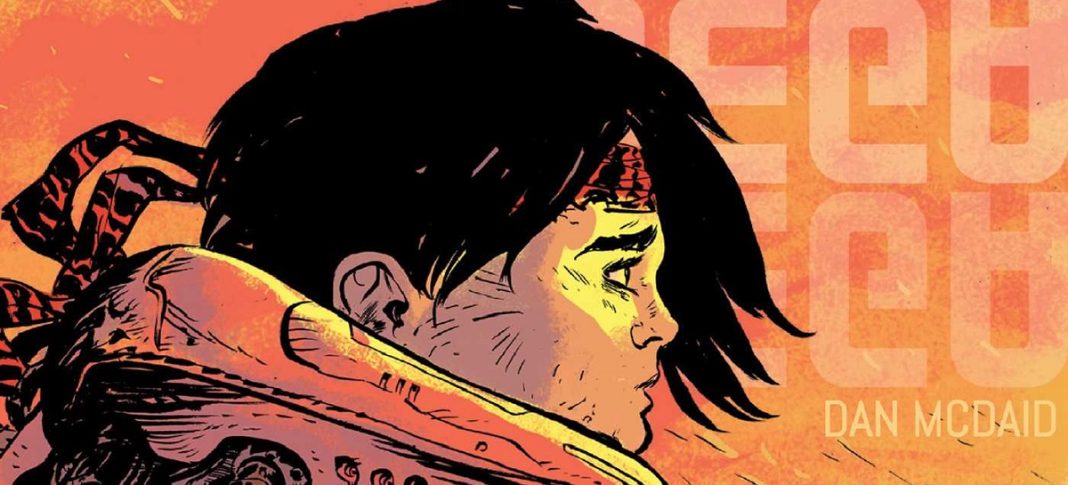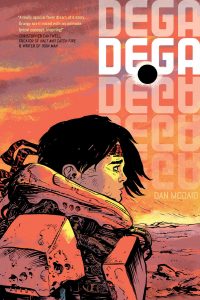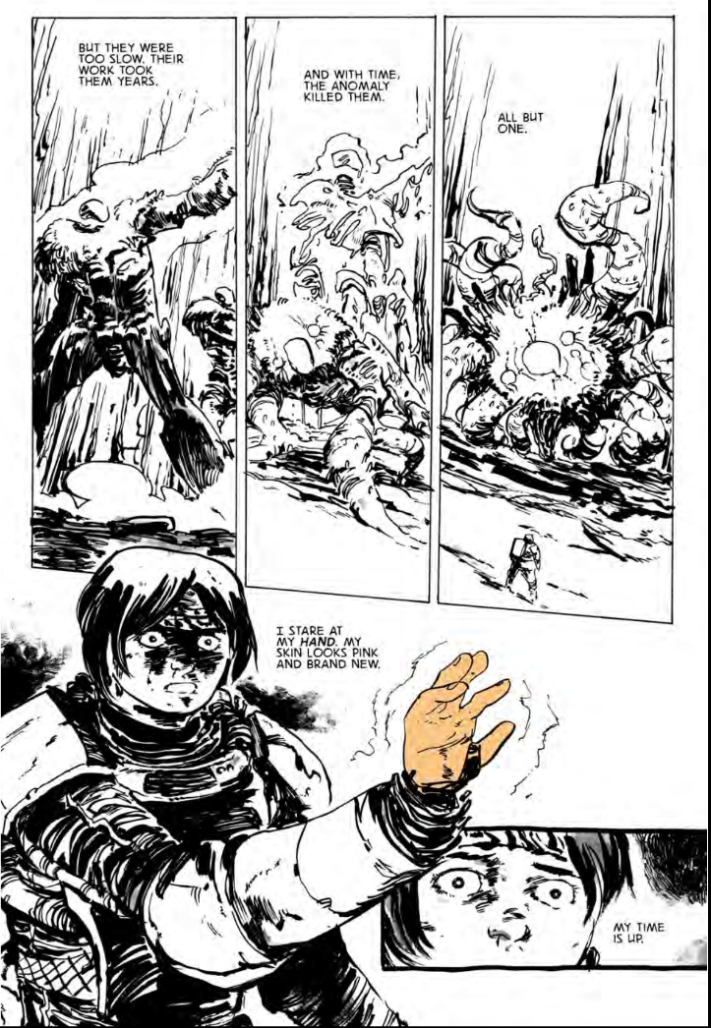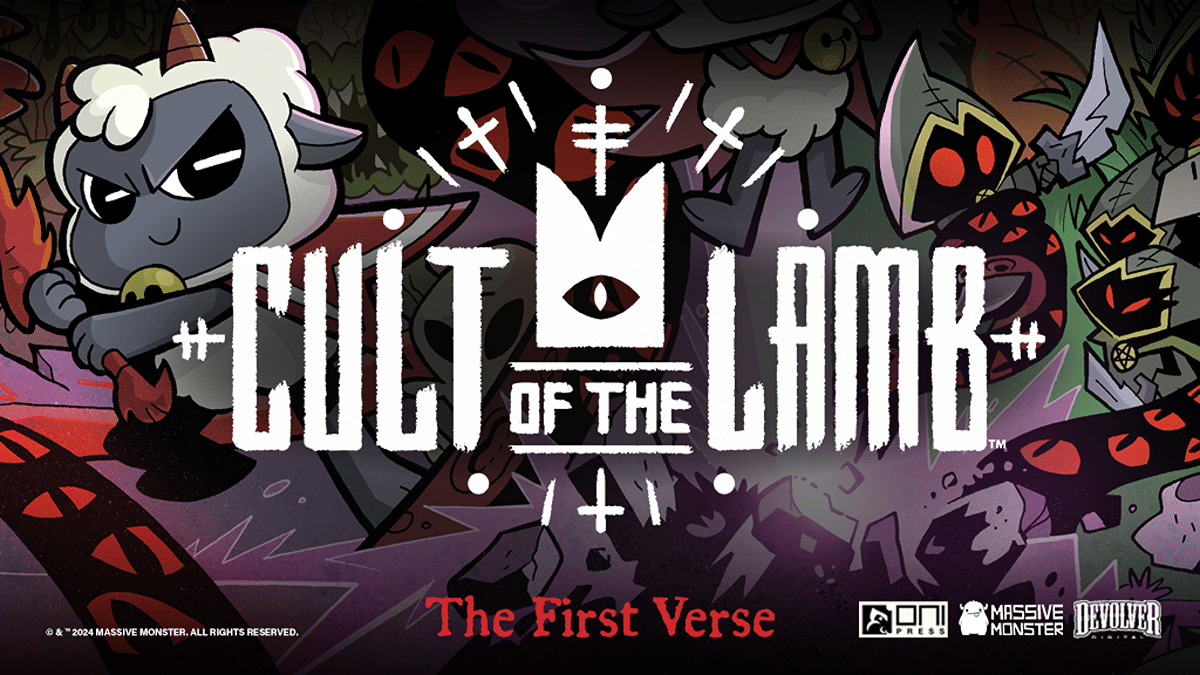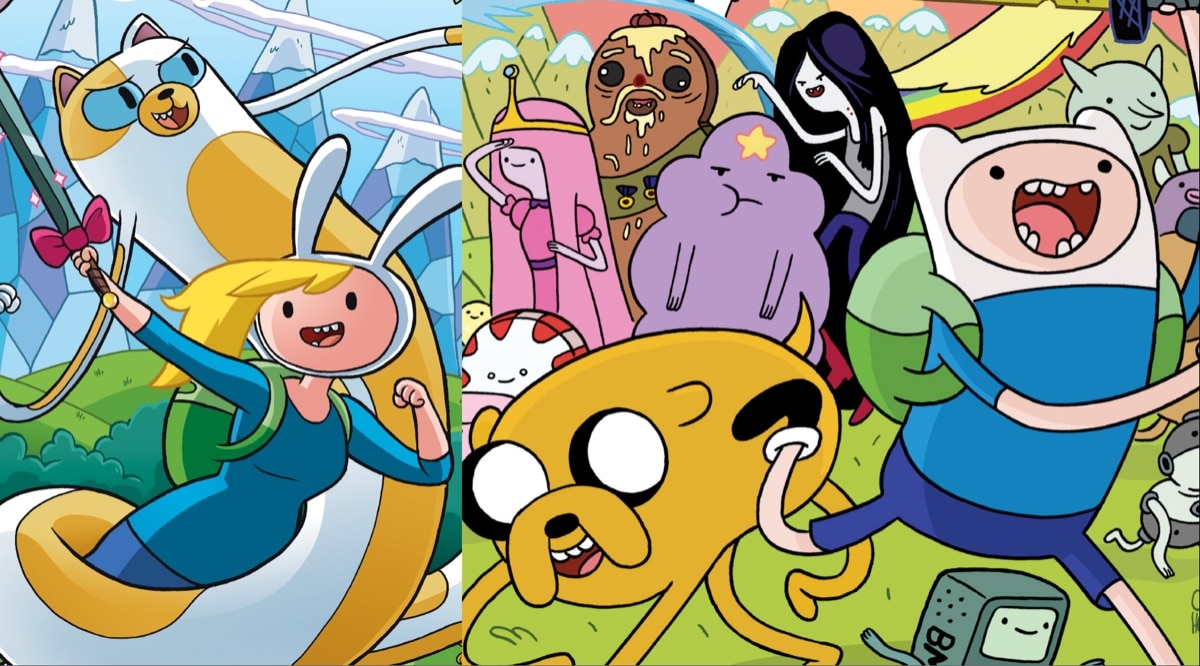 Dega Vol. 1
Dega Vol. 1
Creator: Dan McDaid
Publisher: Oni Press
Publication Date: January 10, 2023
From the opening sequence, what becomes most apparent about Dega is that it is a story concerned with atmosphere. The darkness of space, the blackness of the night sky and lead in to our protagonist alone on an alien world create a haunting tone that propels the rest of the story forward. Dialogue is sparse, and there isn’t much of a plot. Rather, everything is focused on the mood of isolation and the need for survival.
In that regard, Dega delivers a gorgeous account of the dangers hidden in the dark, and draws you in with every page. While absent of a more engaging narrative to put this over the top, Dan McDaid still presents a strong showcase of artistic ability and natural sci-fi curiosities worth exploring in the future.
Dega’s most interesting feature is the heavy use of black and white, with densely inked pages to give the book a rough edge. The story shifts in perspective from full color to black and white progressively as the alien world our unnamed protagonist explores presents more and more danger. In some sequences, the color is minimal, as if the world itself is causing the desaturation.
McDaid’s approach here speaks for itself, as the detail and linework are excellent. The slight glow of the minor color we do see gives us a sense of scale compared to the black, cold, steel world around us which helps maintain the atmosphere this book is attempting to develop. The story is a constant descent into more isolation, and more danger from the creatures that live below. As our protagonist continues to descend, they lose that minor glow of color that might have otherwise lit their way through this odyssey.
The conflict between black/white and color ultimately serves as the thesis of the piece, where our protagonist finds themselves struggling between the primal, and cyclical nature of life and death that all of us must face alone, and the dim glow of purpose that unpins any desire for survival.
Dan McDaid’s previous work is composed heavily of classic sci-fi properties, working on everything from Doctor Who to Planet of the Apes. As such, his influences feel cinematic, specifically in terms of pulp sci-fi where the function of the technology and scientific concepts are not as important as the contrast to humanity, and asking larger existential questions about our relationship to space, time, and the entire cosmos. The monsters are big, the danger is coupled with adventure, and the impossible dread is very likely to be overcome in the end. This approach which is at the heart of Dega as a lone figure armed with weapons of the future battles monsters in space gives the book a sense of fun that intentionally clashes with dread. The book feels like a structural war between the black/white induced fears and the beam of color in the form of adventure and the thrill of success.
The choice to bookend the story with the same image of a pitch black world in the dead of space invokes a similarity to Ridley Scott, where the visual symbolism feels like the core of the story. The difference, though, is that Scott’s work tends to be long and methodical. At 44-pages, it never quite feels like McDaid has the space to explore or interrogate his symbols to quite the same degree of success. Ultimately, the lack of dialogue or even time to appreciate individual settings keeps the story from feeling as emotionally engaging as it is visually unique and complex.
That said, the rest of this collection is a meticulously chronicled account of McDaid’s process, sketches, notes and commentary. The back matter runs almost as long as the main story, and in some ways is just as fascinating. If Dega is first and foremost an artistic exercise with strong results, then the inclusion of this extra material is invaluable to everyone, whether they be creators or critics. Page after page is littered with sketch work, the sequence of changes that lead to the final product and notes on the intention behind each design choice.
The growth of access to comics process work has become invaluable to a new generation of creators. When I was growing up, finding comics scripts was near impossible. Today, we have entire process editions and the inclusion of storyboards and handwritten notes that give us a window into the world of the artist. The idea that this entire package comes coupled with a complete story is more than worth the price of admission.
Dega is a strong graphic novel from the early days of 2023. The artistic style is unique and provides a solid foundation to discuss ideas of both pulp sci-fi and existential musings on survival. While there isn’t enough of a narrative thrust to ignite an emotional engagement, there is a wealth of knowledge to be found in the process notes. Dega is a solid sci-fi comic that is as educational as it is entertaining.
Verdict: BUY
Check The Beat’s review section for a new graphic novel review every Friday in 2023! And make sure to read TRADE RATING each Thursday for a review of collected material!


